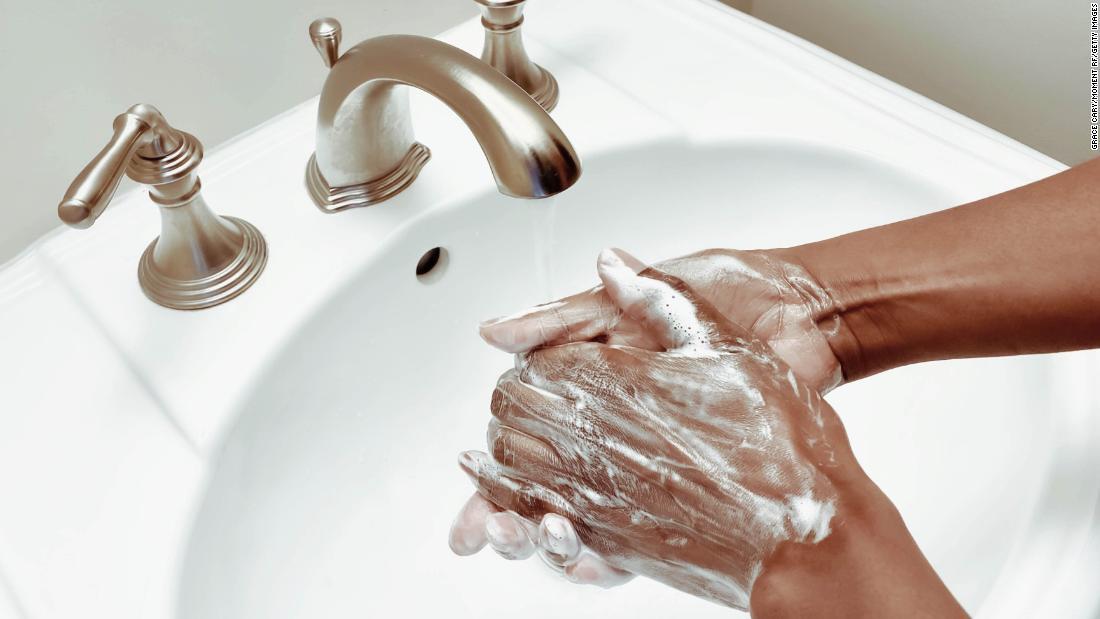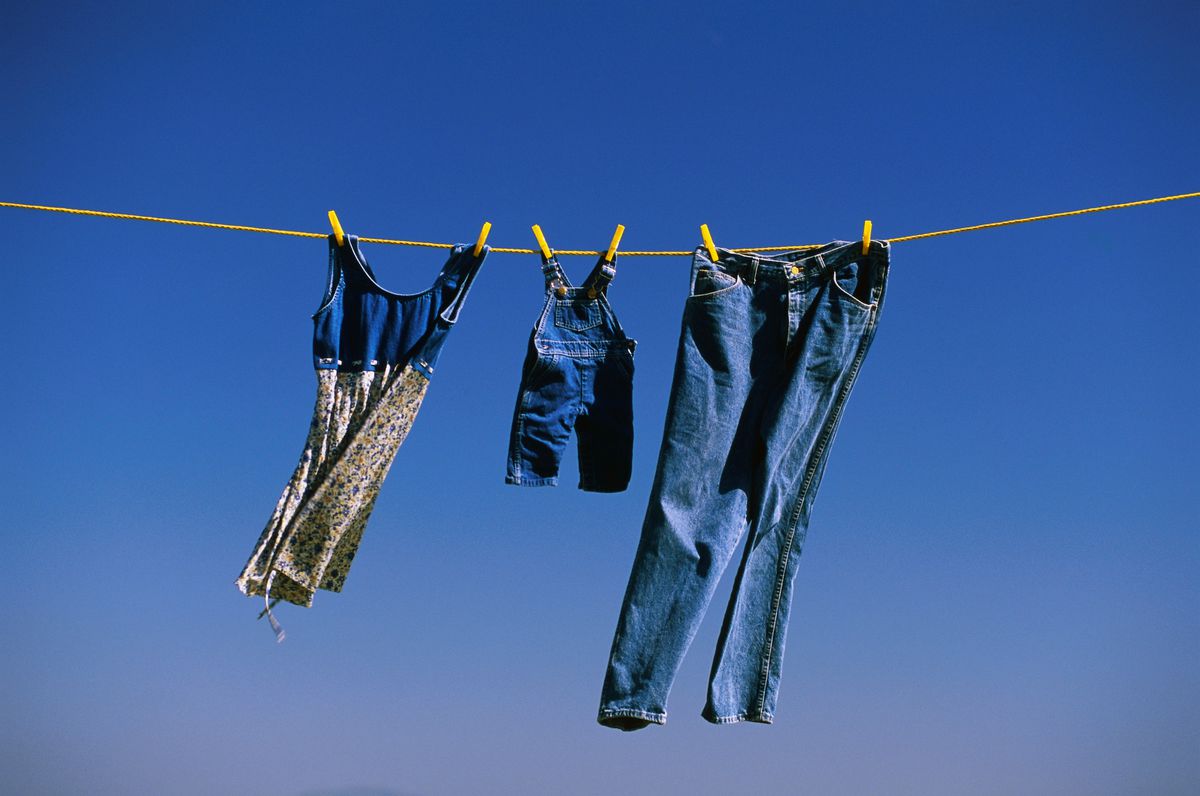The correct way to wash your hands, according to WHO 3:38
(CNN) -
It's the mantra of the pandemic: wash your hands, often.
Scrub until a lot of lather comes out and wash for at least 20 seconds (or as long as it takes you to sing "Happy Birthday" twice).
Rinse, pat dry, and repeat as much as possible.
And we did it.
A June 2020 study by the U.S. Centers for Disease Control and Prevention (CDC) found that Americans said they washed their hands twice as often as in 2019.
The mysterious contagion of coronavirus on an airplane and the importance of washing your hands
The correct way to wash your hands, according to WHO 3:38
A new study, which was conducted in a Chicago hospital in which the use of soap and disinfectant is monitored electronically 24 hours a day in all entrances and exits of the rooms, revealed that the staff were 100% compliant with fair standards after the virus invaded the country, much to the delight of infection control specialist Dr. Emily Landon.
"Our healthcare workers were really concerned about covid, they didn't know who had covid and who didn't, so they were extremely careful about hand hygiene," said Landon, study co-author and chief medical officer for infection prevention and control. the Chicago Medical University.
Unfortunately, it seems that we all quickly reverted to our old habits.
advertising
According to the study published Monday in the journal JAMA Internal Medicine, it took only four months for doctors, nurses, technicians and cleaning personnel to return to a 51.5% compliance rate for daily hand washing.
Additionally, a nationally representative survey conducted in January found that only 57% of Americans reported washing their hands six or more times a day, for example, after using the bathroom, before eating, or after returning from a trip. out of home.
This is a significant decline from the 78% of people who reported frequent hand washing when the survey was conducted in the early days of the pandemic.
«Hand hygiene is a habit.
It's like putting on a seat belt, or eating healthy or exercising regularly;
it's something you have to get used to doing, ”said Landon.
Mask washing and disinfection 0:47
We are lousy when it comes to washing our hands
Let's face it: Studies show that we don't wash our hands regularly, even when we know we should.
And if you ask us, we even lie about it.
"None of us want to look dirty, so we're willing to lie that we've washed our hands after going to the bathroom," says Landon.
Women are more likely to lie out of shame than men, who typically "don't care" about washing their hands, said Jon Dommisse, director of strategy and corporate development at Bradley Corporation, a commercial toilet company that conducts regular, representative surveys. nationwide on handwashing habits in the United States.
The CDC report corroborates this: “Regardless of the year, men were much less likely than women to remember to wash their hands before eating in a restaurant, before preparing food, after using the bathroom at home and after of experiencing respiratory symptoms. '
The men got a little more up-to-date last year after the start of the covid-19 pandemic, Dommisse said.
"It's like a battle of the sexes as to who washes their hands the most," Dommisse said.
“Every year women beat men, except this last year of covid, in which men seem to be more attentive to maintaining better habits.
It was a bit surprising.
But in January, only 38% of Americans still reminded family members to wash their hands, up from 54% last year, Dommisse said, while "rinse and run" hand washes were on the rise. increase.
"We call it 'rinse and run,' when you walk into a public restroom and don't take the time to use the soap, you just rinse your hands and run out the door," he said.
«In April 2020, only 27% admitted to doing so.
In January of this year, it rose to 48%.
The good news is that we can relearn healthy hand hygiene habits, as demonstrated over the dozen years that Bradley has been studying American handwashing.
"Every time there is some kind of flu or health outbreak, it definitely escalates," Dommisse said.
"Obviously it happened with the covid, which is the highest of all time, but we registered improvements with SARS, Ebola, bird flu and even a year in which the common flu was much more frequent."
Hygiene in hospitals
While it may be alarming to learn that hospital staff may have decreased hand hygiene adherence, keep in mind that the new study monitored every room and hallway they entered, not just the bathrooms.
This is because in the 24 hours after a patient is admitted to a hospital room, the entire room is covered in "a patina of their own bacteria, just as your house is covered in your bacteria," Landon said.
Food in pandemic: "It is in our hands to strengthen the defenses"
"And if you don't clean your hands, you take it to the infirmary space, and then you can take it to another patient's room," he added.
"So we expect everyone to wipe their hands twice every time they enter a room, once upon entering and once upon leaving."
If doctors, nurses and technicians "bundle" their tasks with patients, they can enter a room much less frequently, which is what the study found in the early days of the pandemic.
But as time passed, staff would go back in and out to check on their patients, Landon said.
"It can be somewhat alarming to most Americans that some doctors and nurses don't clean their hands," he said, "but it's because of all those kinds of quick in and out that we often do."
"The reality is that when hospitals look at hand hygiene comprehensively, measuring each of the hand hygiene cases that are supposed to occur, they often find they are 30% compliant," he said.
"So our 51.5% is pretty good."
Crisis in hospitals due to covid-19, what is the occupation of beds in your country?
To do?
It's actually not that hard to have clean hands, experts say.
"Set some rules," says Landon, an infectious disease specialist.
“If you come to my house, the first thing I say is, 'Hey, take off your shoes and would you mind washing your hands?
Our house rules are that we wash our hands before we eat, we wash our hands after using the bathroom, and we wash our hands when we enter an activity, such as going to work or coming home.
There is a correct way to wash your hands: a full 20 seconds, with lather, scrubbing the insides of the fingers and the fingertips and the back of the hands.
Here's a video from CNN Chief Medical Correspondent Dr. Sanjay Gupta showing you how.
Maybe you already feel like you're doing everything you can to wash yourself the right way?
Landon hears that all the time from patients who have covid and they say, 'I did everything right.
I followed all the rules.
"When you talk to them, it turns out that they took some shortcuts," he said.
"So chances are, if our healthcare workers are saving steps in cleaning their hands in the hospital, then you are probably doing it too in cleaning your hands at home."
"It's probably time to put a little extra effort back into it," he said.
Covid-19 Hygiene


/cloudfront-eu-central-1.images.arcpublishing.com/prisa/XU5TW47UO5E65LAD4SJM6DIGU4.jpg)











/cloudfront-eu-central-1.images.arcpublishing.com/prisa/B7F2F3HZ2JCUHDZJKAGKAXXPSU.jpg)